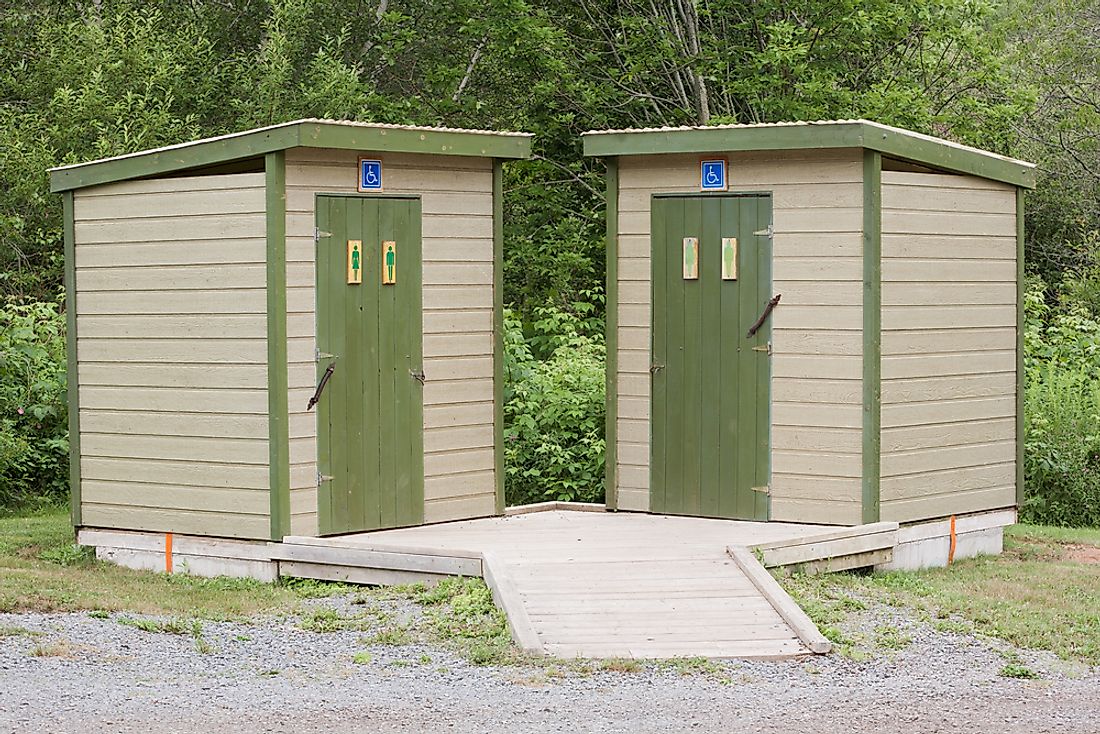Countries Who Lack Access to Sanitation — Urban

Food, shelter, clothing, and improved sanitation facilities are basic and universal human needs. However, the majority of countries, especially in developing countries, have no or poor access to these basic needs especially for those living in rural areas. While the majority of the rural population has access to food, shelter, and clothing, the same cannot be said of access to improved sanitation facilities. An improved sanitation facility is simply the capacity of a population to separate human waste from a human with the aim of maintaining and improving hygiene and health standards. Some of the countries whose rural population has the lowest access to improved sanitation include.
Countries Whose Rural Population Has Lowest Access to Improved Sanitation Facilities
Togo
According to United Nations Development Program, only 40% of rural Togo had access to safe and clean water. A further 11% had access to improved sanitation of which only 3% living in Rural Togo. Accessing improved sanitation facilities in rural Togo can be attributed to lack of proper water and sanitation governance, limited visibility of the sanitation sector and shortage of funding to build and improve existing sanitation facilities.
South Sudan
South Sudan’s decades of conflict and poor governance coupled with the constant creation of refugee camps have led to limited access to safe and clean water and improved sanitation facilities. The figures by the World Bank indicate that only 15% of South Sudan population has access to latrines or a proper human waste disposal facility. The majority of these facilities are in urban area with 5% of the people living in rural areas accessing improved sanitation facilities. Due to the poor waste disposal, rural South Sudan leads in Guinea worm cases.
Niger
The majority of Niger rural population is yet to understand the need for improved sanitation. With the largest population living in rural areas of Niger, only 5% have access to improved sanitation facilities with the rest of the rural population opting for open defecation and improper human waste disposal. Sanitation is mainly an individual’s responsibilities that need little effort to improve. The improper human waste disposal has led to health problems in Niger with 30,000 children under the age of 3 years dying every year from diarrhea.
Djibouti
Poor infrastructure and constant conflicts with Eritrea has led to the slow growth of the rural Djibouti. Towns such as Dikhil are most hit by the effects of slow growth, including inadequate access to basic facilities such as clean water supplies, hospitals, and schools. A large portion of the mortality reported every year is related to diarrhea and acute respiratory infections. An inadequately improved sanitation facility is a primary cause of these health risk disease with 5% of the people living in rural areas accessing improved sanitation facilities.
Severe Consequences of Inadequate Sanitation
Poor sanitation and lack of improved sanitation facilities are the leading cause of death especially in children below the age of 5 years. Rural areas of developing nations are the most affected with poor sanitation and deaths. Inadequate sewage system, open defecation, improper waste disposal and lack of access to clean drinking water are the driving force of high mortality in rural areas. World Bank reports 63% of deaths in a rural area as being related to improper sanitation facilities. Several agencies, including the Africa Development Bank, World Health Organization, World Bank, and the European Union have initiated several projects aimed at improving sanitation in these countries. Areas of emphasis include digging of latrines, building of septic tanks and digging of sewer lines.
Countries Whose Rural Population Has Lowest Access to Improved Sanitation Facilities
| Country | % of rural population with access to improved sanitation facilities |
|---|---|
| Togo | 3 |
| South Sudan | 5 |
| Niger | 5 |
| Djibouti | 5 |
| Congo, Rep. | 6 |
| Liberia | 6 |
| Chad | 7 |
| Burkina Faso | 7 |
| Sierra Leone | 7 |
| Central African Republic | 7 |











